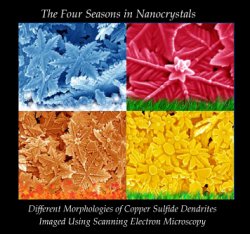
- What is the world like at the nanoscale?
- What happens when you squeeze an electron?
- Can we make a device with a single molecule?
- Can we make a molecular machine?
- Are self-replicating nanobotspossible?
Nanoscience and nanotechnology is the ability to understand and manipulate matter at the molecular level, to create artificial structures at the nanoscale with potentially novel functions.
Structures behave differently when their dimensions are reduced to the range of between one and one hundred nanometers. Such structures exhibit novel and very much improved physical, chemical and biological properties, due entirely to their nanoscopic size. Once we can control feature sizes on the nanometer length scale, it is possible to enhance material properties and device functions beyond those that we presently know or even consider possible.
Nanotechnology is defined as the ability to work at the molecular level, atom by atom, to create large structures with fundamentally new molecular organization.
Nanoscience is an exciting new multidisciplinary realm that brings together the traditional disciplines of Physics, Chemistry and Biology.
The new minor programme in Nanoscience is offered by the Department of Chemistry and the Department of Physics at the Faculty of Science, NUS.
The module “SP2251 Science at the Nanoscale” is open to all who have passed PC1321/GEK1509 “Introduction to the Nano World”.
It’s suitable not only for students in the sciences and engineering, but also for students from any discipline with an interest in the latest developments in science.
Click here
As NUS has a modular system, you need only pass all 6 modules required and you will be eligible for the Nanoscience minor. You should declare your intention to do the minor online at your next opportunity, and certainly during filing for graduation.
No, but bidding for the modules will be done under CORS in the usual way.
Can I read one or two nanoscience modules but not take the Minor?
Yes, you may only want to read SP2251 and maybe CM3251 or PC3251, and these can be used as part of your Unrestricted Elective or Cross-Faculty Modules. But you will need to ensure that you have the necessary prerequisites to register for the modules.
For more information, please contact: